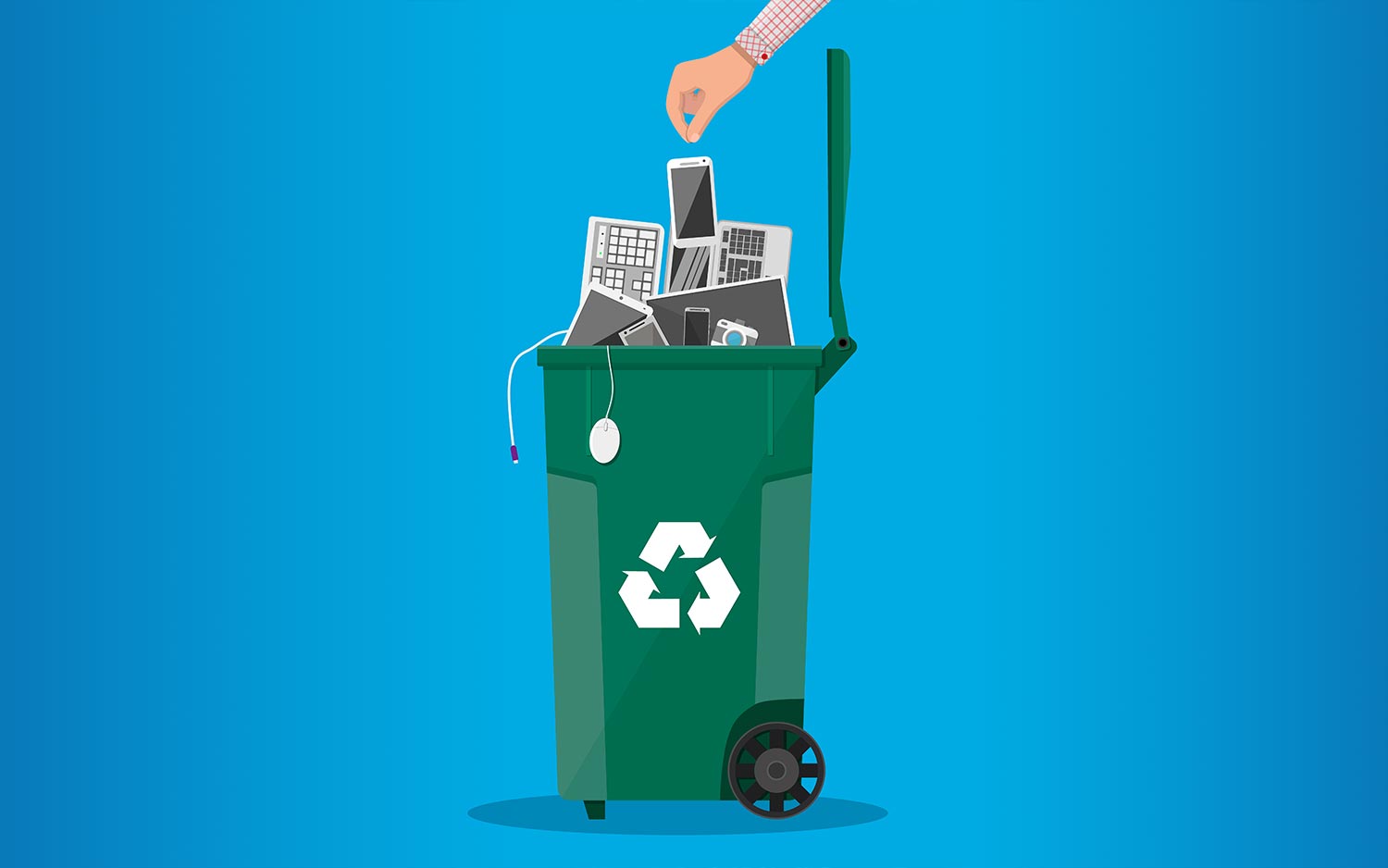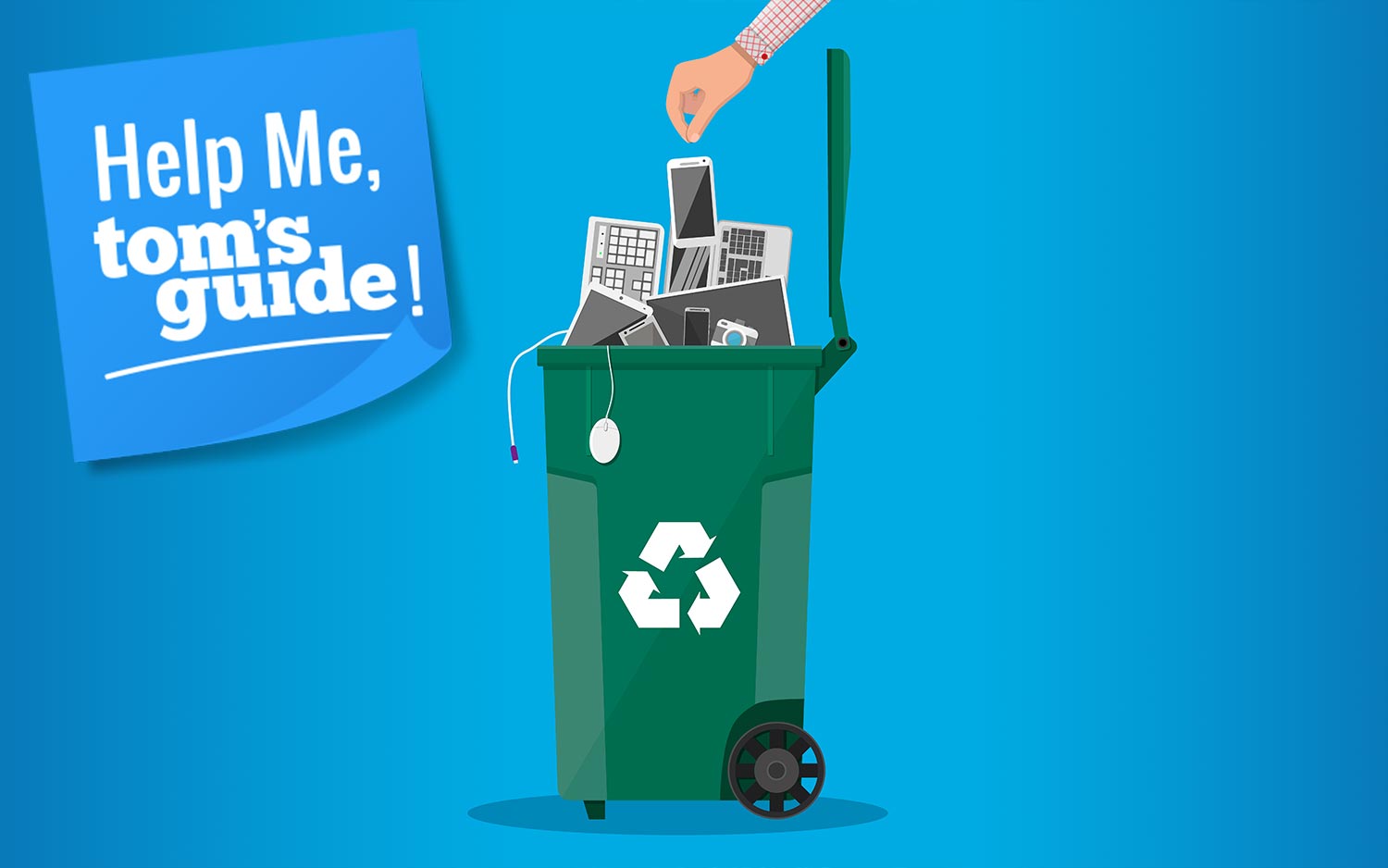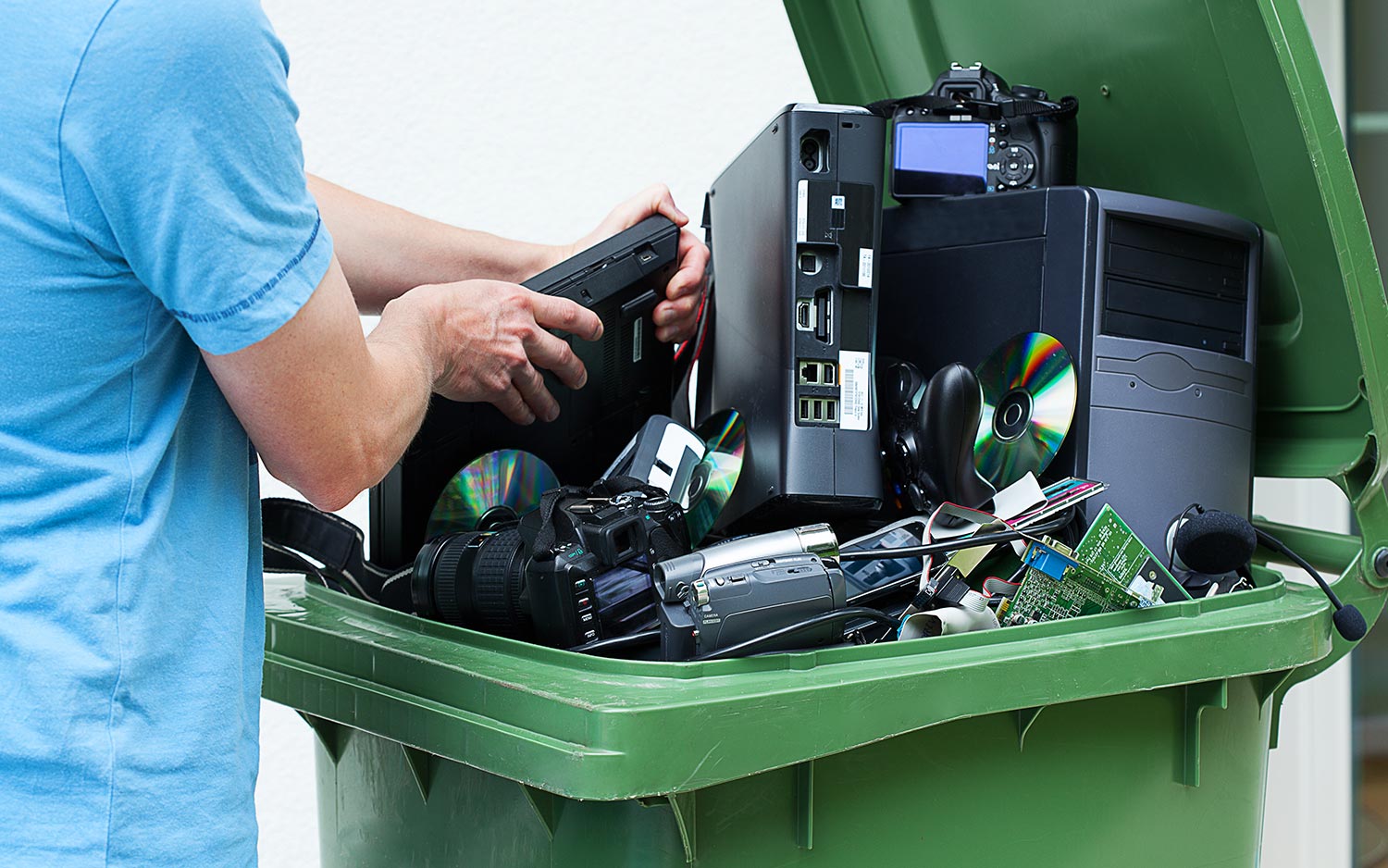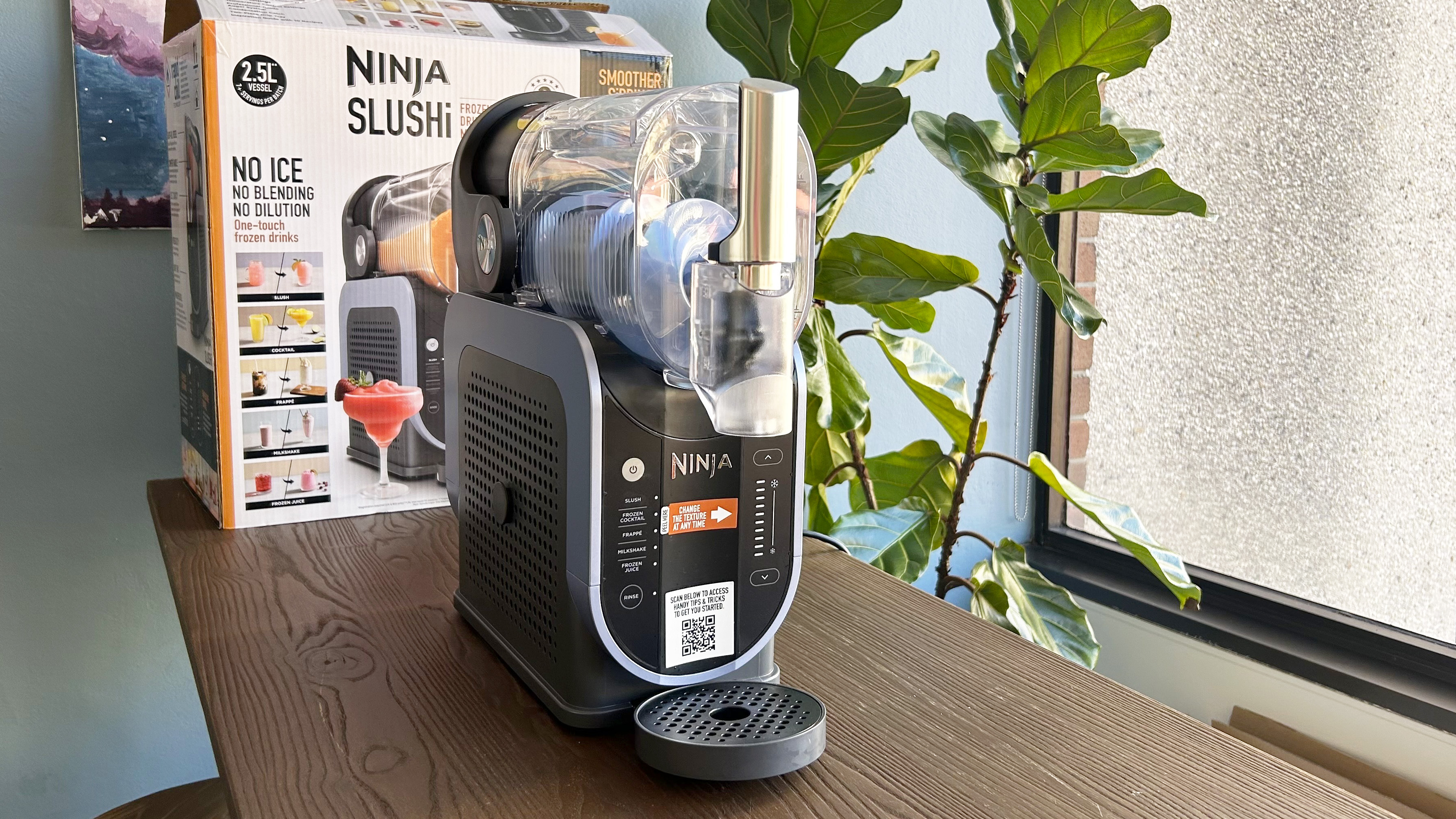Help Me, Tom's Guide: Recycle an Old TV and Other Gadgets?
Old tech might be taking up space in your closet, but don't just put those gadgets on the curb. TVs and computer products raise special concerns that need to be addressed.

At Tom's Guide, we love our tech. Whether it's giant, new 4K TVs or the tiniest Bluetooth headphones, we love the latest and greatest. But what about all the old stuff? What do you do when your closet's worth of old and outdated gadgets has to go?

Tom's Guide forum member Below0 says:
"Over the years, I've accumulated a lot of things. My kids (now grown) have also left behind things like TVs, systems and PC parts that are no longer compatible/usable today. I'm looking for recommendations on how to recycle them."
Now, let's assume that options like reselling or trading in old equipment are out of the question. You've got stuff that nobody wants or needs. How do you dispose of it safely?
(Seriously, though, check out those other options first. There's a bigger market for used tech than most people realize and a major need for donations. Stuff that's obsolete to you can still make a difference to people around the world, so look into donating to an organization like World Computer Exchange or a local charity.)
Why recycle?
There are plenty of very good reasons to recycle your old tech products. According to the EPA, e-waste — a loose term for discarded end-of-life electronics — is filling landfills at an extremely fast rate. The EPA estimates that in 2015, consumers and businesses discarded more than 75 million tons of tech and computer equipment, and only 25 percent of that was properly collected for recycling.
Electronics frequently use materials that can be hazardous, and TVs may be the worst offenders. A single CRT television can contain 2 to 8 pounds of lead, and it's often illegal to simply dump a TV at the landfill. These products, if left in landfills or improperly processed for disposal, can expose people and the environment to nasty contaminants like lead, mercury, cadmium and arsenic. So, recycling is a big deal.
MORE: The Best Smart Thermostats for Comfort and Savings
Sign up to get the BEST of Tom's Guide direct to your inbox.
Get instant access to breaking news, the hottest reviews, great deals and helpful tips.
It's also an important part of preserving natural resources. Plenty of electronics parts rely on valuable materials, like gold and copper, that can be recycled for use manufacturing (substituting for newly mined material), and plastics can be recycled for any number of products.
Where to go?
There are plenty of options for recycling your old tech products, and many of these options are free.
The first place to look may be the store where you bought your gadgets in the first place. Best Buy runs one of the largest retail recycling programs in the country and lets you drop most products off right at your nearest store. Cellphones, computers, old VHS tapes, empty ink cartridges — you name it. If it sounds like something that was bought at a Best Buy or similar store, they'll usually recycle it for free. If you plan ahead, you can even recycle your old stuff during the same shopping trip that gets you a shiny, new model.
Most of Best Buy's recycling is free, but the store does charge a fee for large appliances and televisions. For $99.99, Best Buy will pick up any TV and most larger appliances, like dishwashers, refrigerators, and washers and dryers. No other purchase is required. And while you can use that $99 pickup to discard TVs, Best Buy also has a replacement-product deal; the company will pick up your old TV when delivering a new one, for just $19.99 on top of the price of your new set.

Several states have passed retailer take-back laws, which require big box stores to provide collection services for electronics recycling. As a result, most major retailers — including Staples, Walmart and Target — offer similar in-store recycling programs, even in states that don't require it.
Manufacturers, such as Dell, LG and Samsung, will also take back old equipment. Dell has a partnership with Goodwill, which lets you drop off old electronics at more than 2,000 Goodwill locations across the country.
On the off chance that you can't find a Best Buy or similar retailer where you can take your old stuff, there's always somebody who will find a recycling service for you. Earth911 maintains the largest searchable database of recycling services in North America, with more than 100,000 listed recycling centers and disposal services. You can search by ZIP code to find recycling options in your area. Similar searchable databases can be found at RecycleNation.com and through the Consumer Technology Association.
Finally, if all else fails, try Google. Simply searching for "recycle tech" and the name of your town should help you find a local solution to your gadget-disposal woes.
What else do you need to do?
Before you throw your old LaserDisc player or Windows 98 desktop, you will want to take some steps to get it ready.
First, anything that has an internal memory should be wiped to remove personal information. On a desktop or laptop computer, that will mean both securely wiping the hard drive and checking to make sure you haven't mistakenly left an SD card or USB drive connected.
On old phones, you'll want to wipe any saved data and then reset the phone to factory settings. This should effectively remove your apps; stored personal data; and internal logs of calls, texts and other communications. Be sure to remove any microSD card or similar storage, as well as the SIM card, if your phone uses one.
Your TV can also host a lot of personal information, from your viewing and browsing history to your apps and passwords. Most manufacturers include the option to factory-reset your TV and often have a similar option in the settings menu to clear all cached data.
MORE: The Best (and Worst) iPhone Trade-in Deals
Cleanup isn't just about data. A lot of the tech we use gets downright filthy. Keyboards and mice collect dead skin cells; food and drink spills can gunk up our gear, and dust and insects are literally drawn to electronic equipment. Take the time to wipe down any exposed surfaces, blow out dust and dirt with some compressed air, and do your best to avoid exposing others to whatever grimy accumulations your old tech may have gathered over the years.
Also, take the time to get the accessories together. Even something as simple as taping the power cable to a device will help make sure all the important parts stay together. This is especially important if you're donating your old gear, because a power cable can be the difference between usable equipment and useless junk.
Finally, prep for pickup or drop-off. Most recycling-collection services will ask you to bag anything that has a battery, and retail recycling programs will often provide bags, boxes and even shipping labels to facilitate safe collection. Different devices come with different concerns: Printers have ink that can spill; networking gear has antennas that may snap off, and TVs and monitors have large, fragile panels of glass and plastic. All of it needs to be dealt with for the safety of anyone handling it. If you don't know what needs to be done, call ahead. Your recycling-collection service will have methods for dealing with different gadgets.
Credit: Shutterstock
Brian Westover is currently Lead Analyst, PCs and Hardware at PCMag. Until recently, however, he was Senior Editor at Tom's Guide, where he led the site's TV coverage for several years, reviewing scores of sets and writing about everything from 8K to HDR to HDMI 2.1. He also put his computing knowledge to good use by reviewing many PCs and Mac devices, and also led our router and home networking coverage. Prior to joining Tom's Guide, he wrote for TopTenReviews and PCMag.
-
Kvlt Doom Great article. I've been using my local Best Buy to recycle old tech for years, and use it still whenever I have anything that needs recycling. All of our depleted Alkaline batteries get recycled there, too. I rarely use Alkalines anymore, but some things either require them or if it's pointless to use rechargeable batteries in it (i.e. TV Remotes & the laser light cat toy), when they die, they go to Best Buy. It's a great program.Reply

